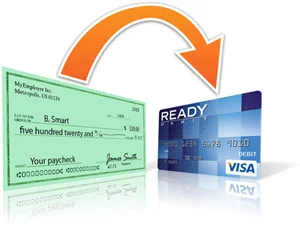November 2025 Stimulus Checks: Separating Fact From Fiction
Alright, let's cut to the chase. The internet's buzzing about stimulus checks hitting bank accounts this November. Specifically, the chatter revolves around IRS direct deposits, potential "tariff dividends" from the Trump camp, and even something called "DOGE checks." As usual, the signal-to-noise ratio is abysmal.
The Stimulus Landscape: A Quick Reality Check
First, the hard facts. There are no new, federally-approved stimulus checks scheduled for November 2025. Congress hasn't passed any new legislation, and the IRS hasn't issued any announcements. The last round of Economic Impact Payments (EIPs) – remember those? – went out in 2021. There was a cleanup effort in late 2024 and early 2025, where the IRS sent "catch-up" payments to those who missed the Recovery Rebate Credit. But that deadline? April 15, 2025. Gone.
Now, about Trump's proposed "tariff dividend." The idea is to use tariff revenue to send checks of at least $2,000 to most people (excluding high-income individuals). A Truth Social post from November 9th outlined the plan. The White House even expressed commitment. But let's be clear: this is just a proposal. It needs Congressional approval, and the details are hazy. Treasury Secretary Scott Bessent mentioned targeting individuals/families earning $100,000 or less, but again, nothing concrete.
Then there are the "DOGE checks." This involves savings from the Department of Government Efficiency (DOGE), previously associated with Elon Musk. The idea is that 20% of DOGE's savings would become a "DOGE dividend" – potentially a $5,000 check for many households. Musk himself has walked back earlier estimates, and a federal judge even blocked DOGE from accessing certain Treasury payment systems. So, yeah, not exactly a done deal.
It's like a mirage in the desert – tempting, but ultimately not real. The promise of easy money is always alluring, but it's crucial to maintain a healthy dose of skepticism.
Decoding the Online Chatter
Why all the confusion? A quick scan of search trends reveals spikes for terms like "IRS stimulus payment November 2025" and "2025 stimulus check IRS." Social media is rife with claims of $1,390 IRS direct deposits and $2,000 November stimulus checks. But these claims are largely unsubstantiated.

Often, these rumors can be traced back to state-level programs, such as Alaska's Permanent Fund Dividend, or are simply scams. The IRS is actively warning taxpayers about fake stimulus payment messages designed to steal personal information. They emphasize that the IRS never initiates contact via email, text, or social media. Official communication starts with a letter or notice, which can be verified through a secure IRS online account. If someone's demanding immediate payment or threatening legal action, it's a scam, plain and simple.
I've looked at hundreds of these fraud alerts, and the recurring pattern is always the same: preying on financial anxieties and the hope of a quick buck.
One particularly persistent rumor revolves around a $1,390 IRS direct deposit. A recent Economic Times explainer directly debunks this claim, stating that no such payment has been approved. FOX 5 DC adds that these recurring rumors often link back to state-level programs or outright scams. It's a classic case of misinformation spreading like wildfire. The original source is often obscure, the claims are vague, and the "official confirmation" is conveniently missing.
And this is the part of the report that I find genuinely puzzling: How do these rumors gain so much traction, even when they're demonstrably false? Is it simply wishful thinking, or is there a more organized effort to spread misinformation for malicious purposes?
The Real IRS: What They *Are* Doing
So, what is the IRS actually doing? They're processing regular tax refunds, of course. If you e-file and choose direct deposit, you can typically expect your refund within 21 days. The IRS also handles tax credits and benefits claimed on returns, like the Child Tax Credit or Earned Income Tax Credit (EITC). But these aren't new "stimulus checks"; they're standard tax processes. The cleanup of old COVID-era money is finished. The IRS's own Economic Impact Payment page still says it has issued all first, second and third EIPs and that the old "Get My Payment" tool is now disabled, except for historical info.
The point is: if you see "IRS direct deposit relief payment November 2025" and it isn't talking about your regular tax refund, it's probably misinformation.
The Bottom Line: No Free Lunch
As of today, November 14, 2025, there are no new federal IRS stimulus checks or direct deposit relief payments approved. The last official federal Economic Impact Payments (“stimulus checks”) were the COVID‑era payments that ended years ago. The viral “$1,390 IRS direct deposit” and “$2,000 November stimulus” posts are not based on any IRS announcement. Fact‑checks and mainstream outlets say these claims are false or unverified. President Donald Trump has proposed a separate “$2,000 tariff dividend” (sometimes called a new Trump stimulus package), but it is only a proposal and would require Congress to pass a law before anyone gets a direct deposit stimulus check. “DOGE checks” or “DOGE dividend” payments (up to $5,000) are also only ideas, tied to savings from Elon Musk’s Department of Government Efficiency (DOGE). No DOGE stimulus checks are scheduled or approved. If you see a link telling you to “pre‑register” for an IRS direct deposit relief payment or update details via text or social media, assume it’s a scam. The IRS says it does not start contact by text, email or DM. Stimulus payment November 2025, IRS direct deposit relief payment & tariff dividend fact check
Don't Bet On It
The data is clear: No stimulus checks are coming this November. Temper your expectations accordingly.
